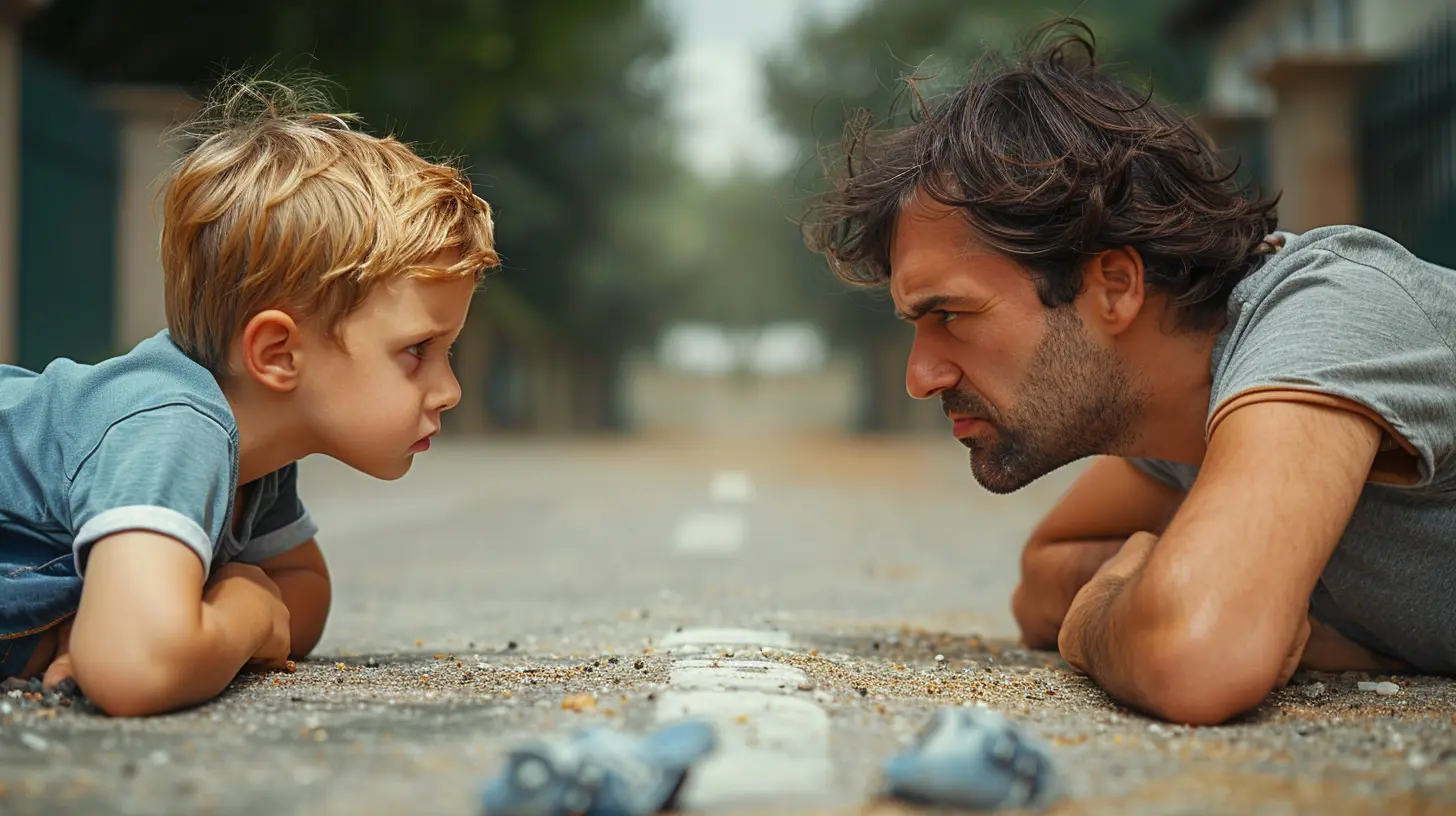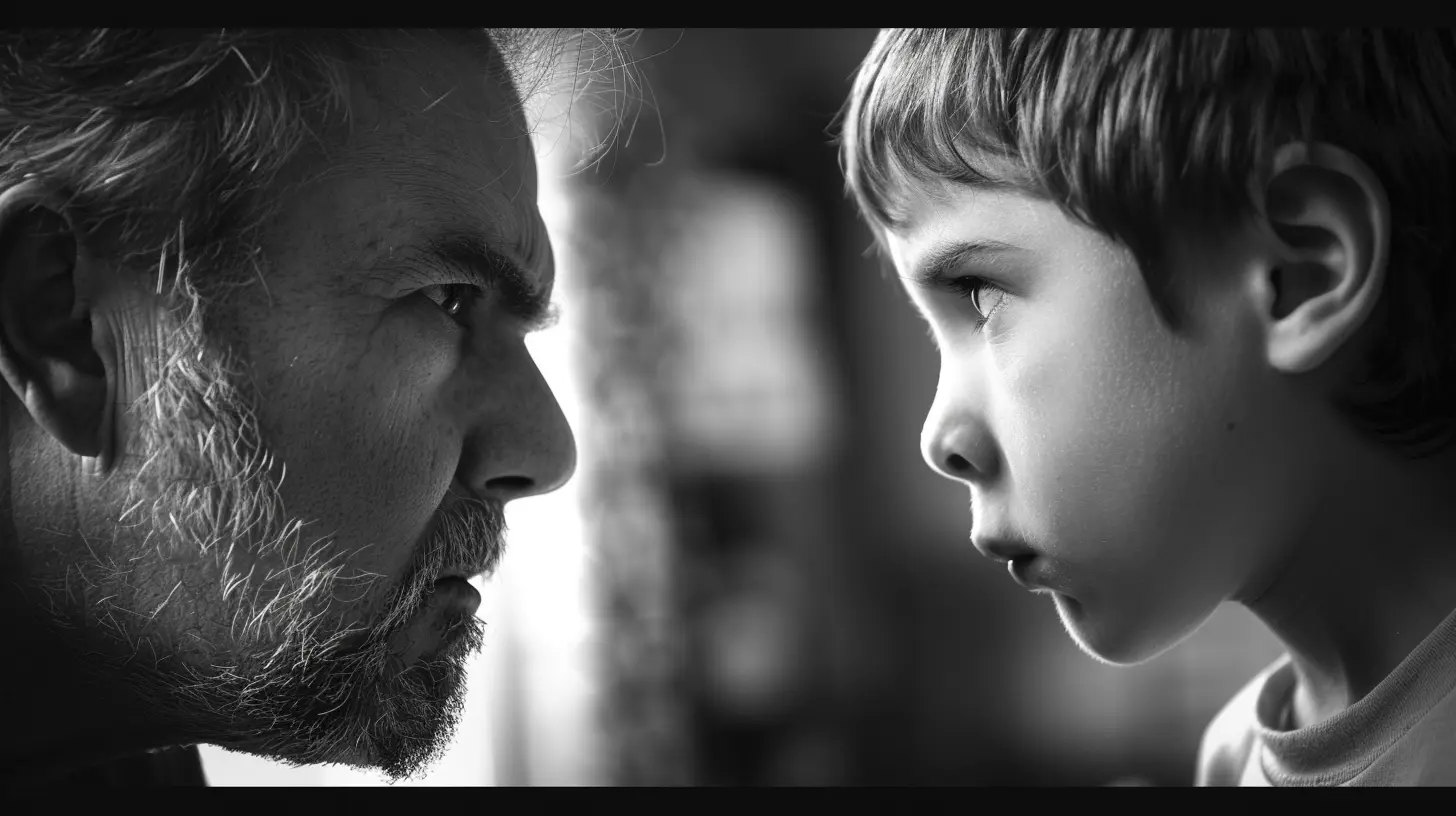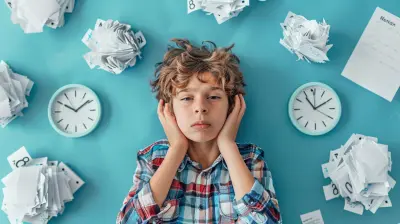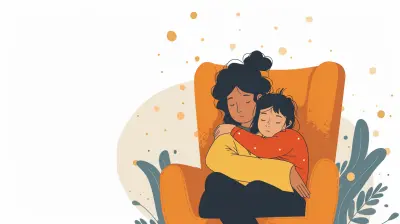The Power of Natural Consequences in Parenting
6 October 2025
Parenting is one of the toughest yet most rewarding jobs in the world. Every decision we make shapes our child’s future. One of the most effective ways to teach responsibility, accountability, and decision-making is through natural consequences.
But what exactly are natural consequences, and how do they work? Let’s dive into the concept and see why they might be the secret ingredient to raising independent and capable kids.

What Are Natural Consequences?
Natural consequences are the direct results of a child’s actions or choices—without a parent intervening, lecturing, or punishing. Instead of enforcing rules with artificial punishments, parents allow their child to experience the real-world results of their actions.For example:
- If a child refuses to wear a jacket on a cold day, they will feel cold.
- If they leave their bike outside in the rain, it may rust.
- If they don’t eat lunch, they will feel hungry.
Unlike punishments, which can feel arbitrary to a child, natural consequences teach life lessons in a way that makes sense. They connect actions to their outcomes in a meaningful way.

Why Natural Consequences Work
So, why are natural consequences so powerful? Here’s why:1. They Teach Responsibility
Kids don’t learn responsibility just by hearing about it; they learn it through experience. When children see how their choices directly affect their lives, they become more mindful of their actions.If they forget their homework at home and receive a lower grade, they quickly realize the importance of being prepared—without a lecture from you.
2. They Encourage Problem-Solving
When parents constantly rescue their kids, children miss out on valuable problem-solving opportunities. But when kids experience natural consequences, they learn to think ahead and make better choices next time.For instance, if your child stays up too late and feels exhausted the next day at school, they might reconsider their bedtime decisions in the future.
3. They Foster Independence
Every parent wants their child to grow into a capable, independent adult. Natural consequences give kids the freedom to make decisions while still being in a supportive environment.Children who learn from real-life experiences develop self-discipline and confidence in their ability to handle challenges.
4. They Reduce Power Struggles
If you’re tired of endless arguments and battles over rules, natural consequences might be your new best friend.Instead of nagging your child about putting their toys away, let them experience what happens when they can’t find their favorite toy because it’s buried under a pile of clutter. Reality becomes the teacher—not you.

When to Use Natural Consequences (And When Not To)
While natural consequences are incredibly effective, they aren’t always the best approach. Here’s when to use them—and when to intervene.✅ Use Natural Consequences When:
- The consequence is safe. If the outcome won’t harm your child or someone else, it’s a great learning opportunity.- The lesson is clear. The consequence should directly relate to their choice so they can easily connect the dots.
- The stakes aren’t too high. It’s okay if your child forgets their lunch once, but not if they repeatedly miss meals.
❌ Avoid Natural Consequences When:
- The situation is dangerous. If the consequence could cause serious harm (e.g., running into the street without looking), redirect and set firm limits.- The lesson is too overwhelming. Some mistakes carry consequences that are too much for a child to handle emotionally. In these cases, guide them gently.
- It affects others unfairly. If their actions harm someone else (like hitting a sibling), intervention and logical consequences are more appropriate.

How to Introduce Natural Consequences Effectively
Simply allowing consequences to happen isn’t enough—you need to guide your child through the experience without shaming, rescuing, or saying, "I told you so."Here’s how to do it effectively:
1. Stay Calm and Neutral
When your child faces a natural consequence, resist the urge to scold or lecture. Instead, respond with empathy:- "Oh no, it looks like you forgot your lunch today. That must be tough."
- "It’s pretty chilly outside. I hope you’ll be okay without your jacket."
Your child will learn more from the experience if they aren’t busy being defensive against a lecture.
2. Offer Support, Not Rescue
If your child made a mistake, it’s okay to acknowledge their feelings, but don’t rush in to fix everything.- Instead of bringing their forgotten homework to school, let them experience the natural result of their forgetfulness.
- If they didn’t bring a snack on a long outing, allow them to feel hungry rather than sharing yours immediately.
This doesn’t mean you should be unkind—it just means you should let them feel the effect of their choice while offering comfort rather than solutions.
3. Help Them Reflect and Plan for the Future
Once they experience the natural consequence, help them reflect on it. Ask open-ended questions like:- "What do you think you’ll do differently next time?"
- "How did that choice work out for you?"
- "What could you do to prevent this from happening again?"
This helps your child make connections and take ownership of their actions.
4. Be Consistent
Kids learn best through repetition. If you sometimes save them from consequences and other times don’t, they might struggle to understand the pattern.Consistency helps reinforce the idea that their actions lead to real-world results.
Common Parenting Fears About Natural Consequences
Many parents hesitate to let their children experience natural consequences because of common fears. Let’s address a few:“Won’t they think I don’t care?”
Actually, the opposite is true. Allowing natural consequences shows that you trust your child to learn from their experiences. Of course, you can still offer empathy and comfort, but stepping back shows confidence in their ability to figure things out.“What if they make the same mistake again?”
That’s okay! Learning takes time. Some kids need to experience a consequence multiple times before they make a change. Stay patient and trust the process.“What if they blame me?”
Children often look for someone to blame when things don’t go their way. Be empathetic, but don’t take responsibility for their choices. Over time, they’ll learn to take ownership of their actions.
The Long-Term Benefits of Natural Consequences
Using natural consequences isn’t just about solving small problems—it’s about preparing kids for real-life success.Kids who understand cause and effect grow into responsible adults who:
✅ Make thoughtful decisions.
✅ Learn from their mistakes.
✅ Handle challenges with confidence.
✅ Take responsibility for their actions.
As a parent, it’s hard to watch your child struggle. But by allowing them to experience natural consequences in a safe and supportive environment, you’re giving them an invaluable gift: the ability to navigate life with wisdom and resilience.
Final Thoughts
Parenting isn’t about shielding our kids from every failure—it’s about giving them the tools and experiences they need to learn and grow. Natural consequences provide life’s best lessons, helping kids think critically, take responsibility, and become independent.So next time you’re tempted to step in and save the day, take a deep breath and let natural consequences do the teaching. You might be surprised at how much your child learns—without a single lecture.
all images in this post were generated using AI tools
Category:
Positive DisciplineAuthor:

Karen Hurst
Discussion
rate this article
1 comments
Kathleen Bellamy
Ah, the art of natural consequences! It’s like letting your toddler wear their superhero cape to the grocery store—sure, they might get strange looks, but hey, at least they’ll feel invincible while refusing to eat their veggies! Parenting: where every day is an episode of “Survivor: Toddler Edition.”
October 10, 2025 at 4:13 AM

Karen Hurst
Absolutely! Embracing natural consequences not only fosters independence but also helps kids learn valuable life lessons—cape and all!


